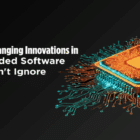Lithium-ion batteries are used in electric vehicles owing to their high capacity and ability to recharge quickly with relatively less energy loss.
As a result, the market for electric vehicles (EVs) has seen phenomenal growth in recent years, with manufacturers creating batteries to extend the driving range of their electric vehicles.
The key ingredients of these batteries are lithium, metal oxide, and carbon. These batteries contain five main technical components: the anode, cathode, separator, electrolyte, and lithium-ions.
Let’s have a look at the LI-ION technology & its advantages:
Lithium-ion batteries (LIBs) continue to get a growing amount of attention as an effective energy storage technology because of their high energy density, almost no memory effect, high open circuit voltage, and extended lifespan.
In recent years, the automotive industry has come to believe that lithium-ion batteries are the best power source for electric and hybrid vehicles, compared to nickel metal hydride, lead acid batteries, and nickel-cadmium batteries battery technologies. This is because:
● It offers customized battery packs for EV, industrial, robotics, solar lighting, telecom, medical, and drone applications.
● It comes in various sizes and specific ranges that enable manufacturers to offer goods that meet performance standards and are best suited for the future.
● The smart battery pack includes intelligent Smart BMS (Battery Management System) for cell balancing, protections, and communications such as UART, RS232, RS485, CAN, and Bluetooth.
● It has a relatively high load current rating, at least twice as higher as NiCad.
● In terms of discharge properties, the Li-ion exhibits behavior similar to the NiCad with comparatively low self-discharge rates.
Types Of Lithium-Ion Batteries
1. Lithium cobalt oxide is the most popular complexation type cathode for industrial lithium-ion batteries (LiCoO2). The high energy of these batteries makes them ideal for usage in electronic cameras, laptops, and cell phones.
2. Lithium manganese oxide batteries are superior to other lithium-ion battery types because they are stable at high temperatures. They also can be used in various applications, including power tools, electric motorcycles, and other items with an expanding range of LI-ION technology uses.
3. Lithium iron phosphate batteries: Unlike their competitors, these can operate at high temperatures. Its strong crystal structure will not degrade during charging and discharging, leading to cycle endurance and a longer lifespan. These batteries are widely used in electric vehicles and other devices that need to have high levels of safety and long lifecycles.
4. Lithium Nickel Manganese Cobalt Oxide (NMC) batteries: Due to their low maintenance requirements, increased reliability, and ability to store more energy, these batteries are often used by the power and auto powertrain industries.
5. Lithium Nickel Cobalt Aluminum Oxide (NCA) batteries offer a lot of potential in the automotive industry, despite not being commonly used in consumer gadgets. Despite their high energy capacity and long lifespan, NCA batteries are more expensive. They are also unsafe than other lithium-ion batteries and must be used with monitoring systems to guarantee driver safety.
6. Li-titanate batteries are used by electric vehicles and e-bike manufacturers. In contrast to other lithium-ion battery forms, these batteries have a lower intrinsic power and energy efficiency, which may present issues when supplying power to motor vehicles.
The Potential Of Lithium-Ion Technology
(Li-ion) batteries are said to be the leading energy storage solution for off-grid renewable energy. The most notable features of these batteries are their better energy and power densities, longer lifespan compared to previous technologies, and lower cost.
With a rise in Li-ion batteries’ demand, their cost can drive down even more with the help of mass production, leading to it getting embraced in the renewable energy sector.
The Future Of Battery Technology
Lithium-ion batteries have impacted modern product innovation by combining conventional systems with newer technologies. This resulted in greater adaptability, security, and flexibility.
The dawning era of lithium-ion batteries is a promising beginning, opening up many possibilities for mobile phones, laptops, electronic devices, automobiles, or storage systems. They play a distinctive role in the energy world as they represent a new ray of hope for the future.
The next wave of highly efficient batteries based on Lithium-Ion is now being developed for the rapidly evolving field of electronics. Because of this, Evolute offers consumers customizable Battery Pack solutions that include a battery management system and protective circuit module.
We believe that Lithium-ion batteries can power the modern world. They are market leaders for rechargeable batteries, as indicated by several reports.
Not only this, but Li-ON batteries also have the aspect of sustainability. As we design fantastical solutions for the future, we have to factor in the long-term socioeconomic consequences of anything from electric cars to energy storage networks to Soliculture. Hybrid cars are undoubtedly more environmentally friendly and sustainable than internal combustion vehicles. Which again ropes in EV into the conversation, along with Li-ON batteries.
This is why we offer Lithium battery packs, as they have a substantially longer life cycle than traditional batteries and increase a vehicle’s dependability and durability. The Li-ion technologies work to improve battery energy density while lowering costs and maintaining an acceptable power density. Please visit www.evolute.in for more information on its battery-related projects.





